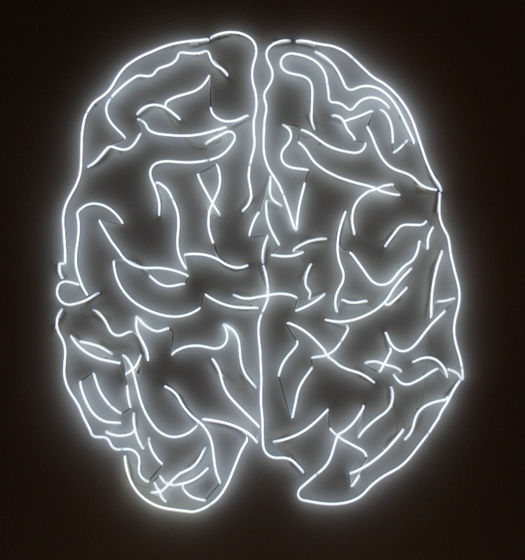A struggle up to research announcement by researchers who reversed the theory and approached the elucidation of the mechanism of Alzheimer's disease

Is not Alzheimer's disease caused by herpes virus? The dominant theory to appear is appearing. Behind the birth of a novel that overturns the conventional theory, there is a structural problem of the world of the science that the correct evaluation is not given because it is contrary to the theory, before the heretic boy trying to overthrow that theory got over Researchers fighting Alzheimer's novels tell us that the high walls that must be found are standing up.
How an outsider bucked prevailing Alzheimer's theory, clawed for validation - STAT
https://www.statnews.com/2018/10/29/alzheimers-research-outsider-bucked-prevailing-theory/
In the study of Alzheimer's disease, the hypothesis (amyloid β hypothesis) that the plaque (mass) of the substance called amyloid β (amyloid beta peptide) accumulated in the brain is the cause is advocated for a long time, and it was an established theory. In the amyloid β hypothesis, plaques of accumulated amyloid β are thought to cause dementia symptoms of Alzheimer's disease by destroying brain synapses or killing neurons, remove amyloid β, accumulate as much as possible By not letting it go, it has been aimed to cure Alzheimer's disease.
However, many researchers have tried a number of treatments based on the amyloid β hypothesis, but failed to achieve definitive results. According to Rudolf Tangji of the Massachusetts general hospital specializing in genetics related to Alzheimer's disease, "Many scientists doubt the truth of the amyloid β hypothesis are the old paradigm of articles that have been cited for decades Many of them are wrong, "he points out the current situation that the amyloid β hypothesis is losing its support in academic societies.

by Michael Coghlan
Suspicions to the amyloid β hypothesis also affect research activities of Alzheimer's disease researchers. It is not unusual for a medical research to require a large amount of research expenses, and it is essential for researchers to obtain research funds from outside. In the study of medical diseases in the United States, there is a mechanism that can aid research funding by appealing the necessity and promising contents of research to the National Institutes of Health (NIH), and the adopted research has an annual fee of 250,000 dollars (About 28 million yen) of research expenses for five years.
However, the attractive NIH research grant aid is a narrow gate, and research expenditure assistance on development of therapeutic drugs for Alzheimer's disease has not been done for 15 years since 2003. There is a situation where it is difficult to allocate the budget to the research of Alzheimer's disease treatment medicine which does not produce results.
Recently, studies suggesting Alzheimer's disease mechanism completely different from the amyloid β hypothesis have recently appeared. A study overturning the conventional dogma that the amyloid beta advocated by two neuroscientists neuroscientist Mr. Robert Moir and Mr. Tanji of Massachusetts General Hospital "is not evil, rather good to protect the brain from bacteria?" It was issued and attracted a lot of attention.
You can find out the history of the discovery of Mr. Moier and Mr. Tanji on the benefit of amyloid beta by looking at the following article.
A fantasy of two researchers who found the benefit of amyloid β affecting Alzheimer's disease - GIGAZINE

Amyloid β was known to be found not only in the brains of Alzheimer's disease patients but also in the brains of healthy people. Also, it was known that peptides such as amyloid beta are produced not only in humans but also in vertebrates, including frogs, lizards, snakes and fish. Amyloid β, which has been preserved during evolution for a long time of at least 400 million years, may play an important physiological role? It was Mr. Moir's idea.
So, Mr. Moir said, "Amyloid β has an action to kill bacteria that have invaded the brain, and plaque is a residue left after attacking bacteria?" We advocated a bold hypothesis to do. This is to say that "Amyloid β, which was thought to be a harmful disease causing Alzheimer's disease, functions rather as a good guard to protect the brain, and another factor such as bacteria is causing Alzheimer's disease" It was a completely different news from the conventional dogma.
Mr. Tanjee supported Mr. Moire's experiments both technically and financially, but he told me that experiments on whether amyloid β kills pathogens could be relatively inexpensive to test with test tubes. As a result of three years of testing, Mr. Moir succeeded in demonstrating that amyloid β kills bacteria and viruses at the laboratory level. After that, we successfully removed hippocampus samples from 32 brains provided by people who died of Alzheimer's disease and confirmed the aggressiveness of amyloid β to microorganisms.

Mr. Moire and Mr. Tanji posted the research paper to Science, a major scientific journal, but it was said that the accepted paper was refused posting after answering "I will consult with Alzheimer's experts" Thing. It seems that it was difficult to announce the results of the research itself, such as being refused to publish articles from other three scientific journals as well.
Finally, due to some of the results of the papers published on PLOS in March 2010, Moire was able to receive a research grant aid of $ 400,000 per year (about 45 million yen) from the NIH. Mr. Moier who carried out an animal experiment with this fund produced "genetically engineered Alzheimer mice" to express plaques of amyloid β by 5 months of age, and injected salmonella into the brain and observed it. As a result, like the cow that fell in a pond with piranha, the injected bacteria was entangled with the fiber of amyloid β, it was confirmed that plaque was formed within 48 hours and infection by bacteria was inhibited He said that.

Mr. Moire and Mr. Tanji gradually posted thesis to six scientific journals in search of research results, but most of them have not been peer reviewed and it is said that "This paper does not suit our needs" It is said that the posting was refused by e-mail consisting of sentences. After that, Mr. Moir continued the experiment and steadily produced evidence suggesting the immune action of amyloid β, but the article never came out.
In the second half of 2015, Aura Smith of Science Translational Medicine who dismissed the paper once again invited Tanji to submit a paper. Mr. Smith initially seems to have not noticed that Mr. Moier and Tanji's paper were rejected. Thus, in 2016 two years after the first post, Mr. Moier and Mr. Tanji's paper will be posted.

Mr. Moier who had already used up funds aided by NIH applied for renewal of research fund aid but was refused from NIH. According to Mr. Moier, in the evaluation document on application for research fund aid, two out of three evaluation committee members are two points (1 point is highest in 9 steps) based on the significance of research and innovation and so on Although it was highly evaluated, from the remaining one evaluation committee, it was said that "6 to 4 points" was evaluated equal to the death sentence judgment. Regarding the evaluation of novelty, although criticism that "I am studying HSV-1 which is a kind of relation with Alzheimer's disease (a type of herpesvirus)" was added, Mr. Moir said, "What is absurd "It is the reason why scientists do science" is to change to "fact", it seems that he was strongly dissatisfied.
"Even though bacteria influence Alzheimer, I can not believe such a thing," Mr. Tanjee speculated that the evaluation committee thought. Mr. Tanji struggled that the evaluator who believes in the amyloid β hypothesis may not even read the recent scientific thesis, "This is the most boring and reason for giving research expenses to the research on the default route" He criticizes the current situation that researchers who take the risk of challenging the dogma are being rejected.
Since then, other researchers have reported that herpesviruses including HSV-1 are the cause of Alzheimer's disease one after another, and research results that may support the correctness of Mr. Moier's and Tangji's hypothesis Has come out.
A research paper supporting the fact that Alzheimer's disease is caused by herpesvirus is announced - GIGAZINE

"Because new and innovative ideas are new and innovative, they are being submerged by only one bad evaluation," Moir says.
Related Posts:
in Science, Posted by darkhorse_log






